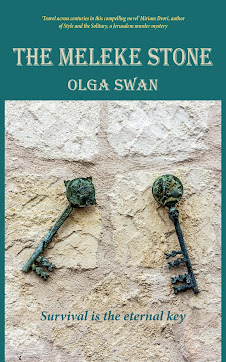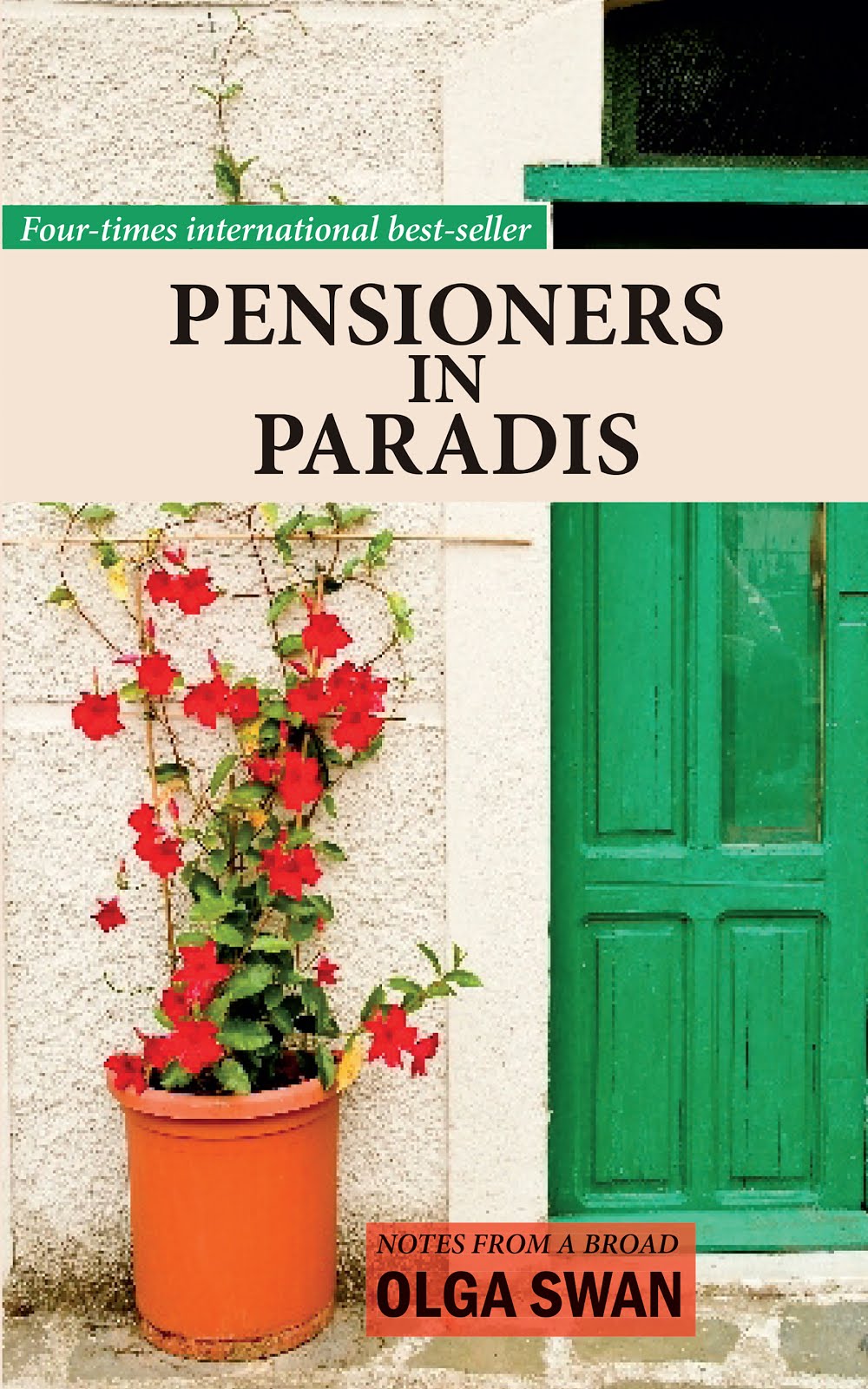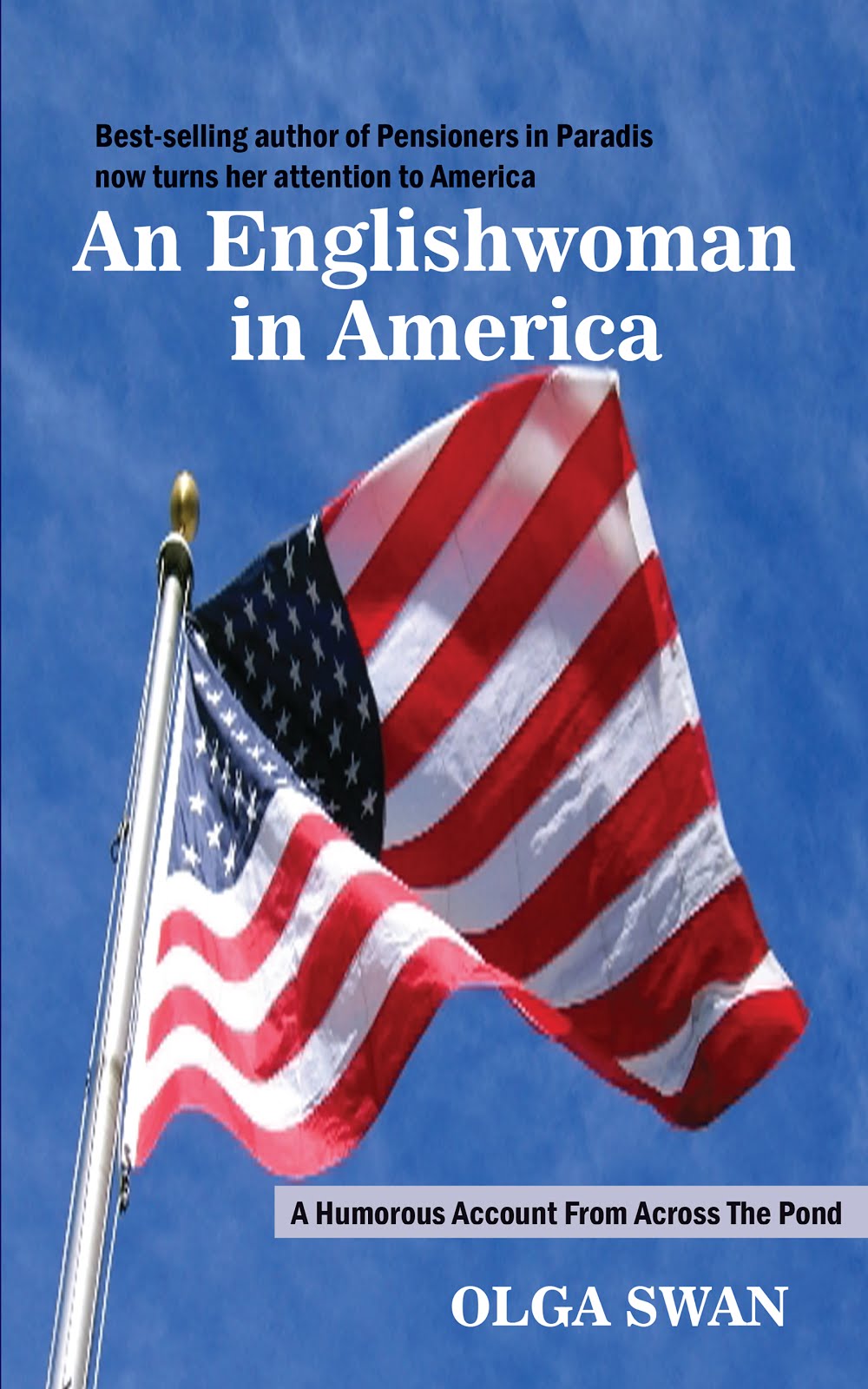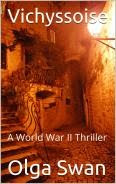At last! Light at the end of the tunnel: hope it's not an approaching train.
Recommendations for English house-hunters in France:
1. When negotiating an offer, do not list its weak points in order to justify a lower offer. The seller takes it personally.
2. Don't suggest a discount because the bath is in avocado. The owner will counter that it's perfect, get upset and refuse to sell to you. Instead, say 'I think the house may be too dear, especially in today's market'.
3. If you're retired, look at property outside the main employment areas. Young French workers rarely want to live more than 30 km from work; (they hate commuting.)
4. Watch the French news. Sarkozy is proposing CGT of 33.1% on the sale of main residences! Decision due this month. Unlikely to be brought in, but.... Meantime, this is certainly the case when you sell a second home, so if you're in this position tread warily on which home you designate as your principal residence.
And Him indoors? Good idea to sell to that buyer called Mr. Balan Singh - he can do your accounts for you......
23 January 2011
I'm seething. Stress and blood pressure levels are dangerously high. Ever since a near relative died 4 months ago, unnecessary obstacles have been mounting. First, because this was an intestacy estate and I live in a non-English-speaking country, I had to drive 120 miles to find a Notaire who understood written English to swear the Oath certificate. Then the UK Probate office decided the original wording on the certificate was insufficient, so another certificate was produced requiring a second 120 mile journey, cap in hand, to explain to the puzzled French Notaire why she must sign another paper. Eventually my poor relative's family home was sold, the new buyers moved in, but the solicitors still held on to the proceeds apparently looking for all and sundry to dip their hands into the pot. But I thought this was 'my' money! Now, the UK Dept. for Work and Pensions (DWP) has stepped into this apparent goldmine sitting in the solicitor's office and declared it too is making a claim on the estate! But, wait a minute. Was this a millionaire, with yachts and mansions to the fore? No, simply my poor bachelor brother. He lived and worked in the UK all his life. All he had in the world was his pension and his home. So, the DWP in its wisdom has decided that the estate cannot be distributed until it first investigates to see if the original pension claim by my 67 years old brother 2 yrs previously, was correct - and this could take months. At the most upsetting time imaginable, bureaucracy steps in in all its gleeful schadenfreude to cause unnecessary mayhem. Words fail me.
16th January 2011
Estate agents and solicitors. An inscrutable bunch. You never know where you stand with them. And their charges! But, whatever you do, don't tell the English lot what the French charge, or there'll be a riot.
Typical English charges: solicitor's fee for selling your house - 700 pounds plus VAT (now 20% - can you believe it?); estate agent's fee - 1.5% of asking price.
Typical French charges: notaire (solicitor's) fee to the buyer only: 18,000 euros. Yes, you heard it. 18,000! Apparently, most of this goes to M. Sarkozy, not to the notaire. Estate agent's fee to the seller only - 6% of asking price. So, for a house selling for 200,000 euros, the agent picks up 12,000 euros.
So, all in all, the French win hands down. Mind you, the French agents in particular work hard for their money. Not only do they accompany all viewings, they arrange notaire appointments, attend all signing appointments at the notaire's office, acting as translator where necessary, and meet all parties back at the new house after the signing.
Him Indoors says he remembers that old solicitor's firm in the UK called Sue, Grabbit and Run. Enough said!
Typical English charges: solicitor's fee for selling your house - 700 pounds plus VAT (now 20% - can you believe it?); estate agent's fee - 1.5% of asking price.
Typical French charges: notaire (solicitor's) fee to the buyer only: 18,000 euros. Yes, you heard it. 18,000! Apparently, most of this goes to M. Sarkozy, not to the notaire. Estate agent's fee to the seller only - 6% of asking price. So, for a house selling for 200,000 euros, the agent picks up 12,000 euros.
So, all in all, the French win hands down. Mind you, the French agents in particular work hard for their money. Not only do they accompany all viewings, they arrange notaire appointments, attend all signing appointments at the notaire's office, acting as translator where necessary, and meet all parties back at the new house after the signing.
Him Indoors says he remembers that old solicitor's firm in the UK called Sue, Grabbit and Run. Enough said!
9th January 2011
New year, fresh start. We're house hunting. Nothing wrong with our present house - it's just in the wrong place. So, we're looking to move nearer to Toulouse. It's interesting what this exercise reveals. French ads have much better practical info., e.g. square metres of each room and land area, type of heating, amount of annual taxes etc., a refreshing change from the typical English ads: '....a deceptively spacious.....'. Most French houses for sale, though, don't have a recognisable For Sale board outside (some have a board on the wall, but most have nothing). This means you can't go round and look from the street but must make an appointment first. If you're like me, you know just by looking at it whether it's for you or not. A good plan when relocating within France is to try and stick to the same Departement (they're pretty big). This way you don't need to re-register the car, nor with the local CPAM (health) and prefecture, and can easily arrange a transfer of your bank account to a nearer branch. I've discovered that most French don't use expensive removal firms, they hire a 'U-Haul' or similar - but you have to be fit to do that or have amazingly good friends! Him indoors says he remembers a removal firm in the UK where a settee fell off the back of the van - the police had to 'recover' it!!
Some things never change!
Some things never change!
2nd January 2011
Any point in new resolutions? Well, yes. Ever since Janus - he of the 2 heads - started looking both back and forwards in the year 153 BCE, it's been a good time to reflect on your life. Here are a few of my own, made from personal experience here in France:
1. Take a tip from the French and never sing Auld Lang Syne on new year's eve. No-one knows all the words anyway, even the Scots.
2. Improve your language skills. Here's Happy New Year in various languages: French: Bonne Annee; Hebrew: Leshonah Tovah Tikatevu; German: Prosit neujahr; Hindi: niya saa mubaraak; Chinese: Shu ten shan; Arabic: Kulaam u antum salimoun. But, I quite like the Brazilian: Boas Festas e Feliz anno Novo - enjoy many good parties. I'm all in favour of that.
3. Get more exercise. At a recent occitan dance I was amazed at how even 80 year olds had so much stamina - they were still dancing when I left exhausted at 2 a.m.
4. Learn from listening rather than looking things up in the dictionary. You can easily come a cropper without realising it - and you don't have to be English to do that. Below is how a perfectly knowledgeable French gite owner fell into the trap:
1. Take a tip from the French and never sing Auld Lang Syne on new year's eve. No-one knows all the words anyway, even the Scots.
2. Improve your language skills. Here's Happy New Year in various languages: French: Bonne Annee; Hebrew: Leshonah Tovah Tikatevu; German: Prosit neujahr; Hindi: niya saa mubaraak; Chinese: Shu ten shan; Arabic: Kulaam u antum salimoun. But, I quite like the Brazilian: Boas Festas e Feliz anno Novo - enjoy many good parties. I'm all in favour of that.
3. Get more exercise. At a recent occitan dance I was amazed at how even 80 year olds had so much stamina - they were still dancing when I left exhausted at 2 a.m.
4. Learn from listening rather than looking things up in the dictionary. You can easily come a cropper without realising it - and you don't have to be English to do that. Below is how a perfectly knowledgeable French gite owner fell into the trap:
'Warning! Do not put hot bottoms on the worktops.'
No answer to that. A very happy and healthy new year to you all!
Subscribe to:
Posts (Atom)

















